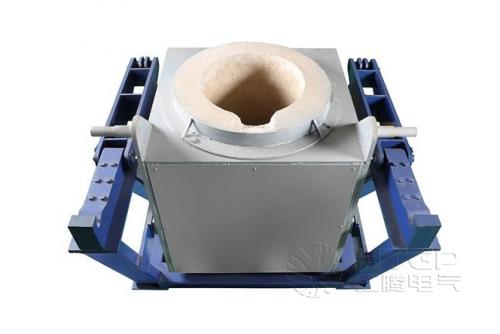The Advantages of Industrial Aluminum Melting Furnace: Boosting Efficiency and Productivity

The industrial aluminum melting furnace is a
key asset in the aluminum manufacturing industry. They provide a controlled
environment for melting aluminum and play a vital role in ensuring efficient
and productive operations.
This article explores the various advantages
of the industrial aluminum melting furnace and how they contribute to increased
efficiency and productivity in aluminum production processes.
Precise Temperature Control
An industrial aluminum melting furnace is
designed with advanced temperature control systems, allowing precise regulation
of the melting process. This level of control ensures that the aluminum reaches
the desired temperature for optimal melting and casting, resulting in higher
product quality and consistency.
Faster Melting Times
Compared to traditional melting methods, the
industrial aluminum melting furnace offers significantly faster melting times.
The combination of advanced heating mechanisms, such as induction or gas-fired
burners, and efficient insulation materials enables rapid and efficient heat
transfer, reducing overall melting cycle times and increasing productivity.
Increased Energy Efficiency
Energy efficiency is critical in industrial
processes, and aluminum melting is no exception. Modern furnaces incorporate
innovative technologies, such as regenerative burners and heat recovery
systems, to maximize energy utilization and minimize waste. This leads to
reduced energy consumption, lower operating costs, and a smaller environmental
footprint.
Versatility in Melting Options
Industrial aluminum melting furnaces are
designed to accommodate various melting options based on the specific
requirements of the aluminum alloy being processed. Whether it's melting
primary aluminum, recycled aluminum scrap, or a combination of both, these
furnaces offer flexibility and versatility in handling different feedstocks,
optimizing resource utilization, and reducing material waste.
Improved Metal Purity
Maintaining high metal purity is crucial in
aluminum production. Industrial aluminum melting furnaces employ advanced
filtration systems and skimming techniques to remove impurities, dross, and
other unwanted elements from the molten aluminum. This results in improved
metal quality, reducing the need for additional refining processes and
enhancing overall operational efficiency.
Enhanced Safety Features
Industrial aluminum melting furnaces are
equipped with advanced safety features to protect operators and minimize the
risk of accidents. These include temperature monitoring systems, automatic
shutdown mechanisms, and effective ventilation systems to control fumes and
emissions. By ensuring a safe working environment, these furnaces contribute to
improved productivity and employee well-being.
Automation and Process Control
The integration of automation and process
control systems in industrial aluminum melting furnaces enables precise control
over the melting process. Automated feeding systems, robotic handling, and
comprehensive monitoring tools optimize operational efficiency, reduce human
error, and improve overall productivity.
Reduced Maintenance Downtime
Industrial aluminum melting furnaces are
designed for durability and ease of maintenance. They incorporate easy access
to components, replaceable refractory materials, and preventive maintenance
schedules. These features minimize downtime for maintenance and repairs,
ensuring continuous operations and maximizing productivity.
Scalability and Customization
Aluminum melting furnace manufacturers offer
a range of furnace sizes and configurations to meet specific production needs.
This scalability allows businesses to adapt their operations as demand
fluctuates. Additionally, customization options enable the integration of
specific features and technologies tailored to individual requirements, further
optimizing efficiency and productivity.
Conclusion
Industrial aluminum melting furnaces offer
numerous advantages that significantly contribute to increasing efficiency and
productivity in aluminum manufacturing. From precise temperature control and
faster melting times to energy efficiency and advanced automation, these
furnaces play a vital role in optimizing operations, reducing costs, and
maintaining high product quality. Embracing the latest advancements in furnace
technology can provide businesses with a competitive edge in the aluminum
industry.
Post Your Ad Here

Comments